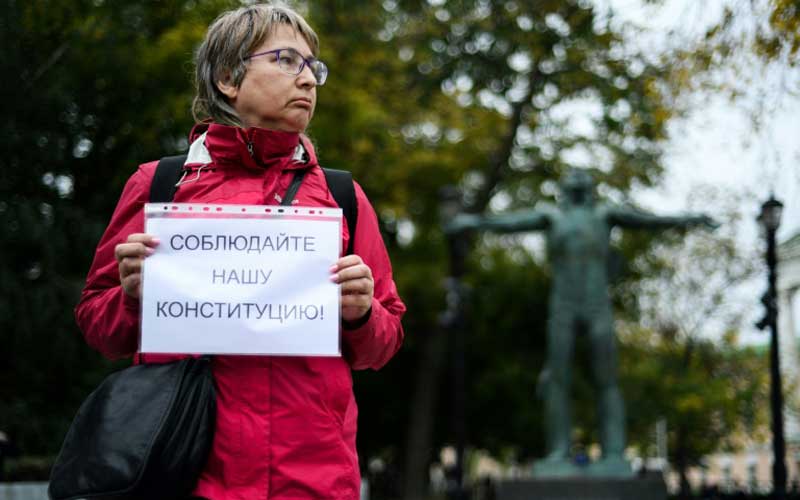×
The Standard e-Paper
Smart Minds Choose Us

Russian opposition activists held one-person protests in Moscow Saturday to demand free elections, as the wave of the Russian capital's larger demonstrations took a breather this weekend.
In a move to circumvent restrictions by the authorities, activists took turns to hold up protest signs as such demonstrations do not technically need approval.